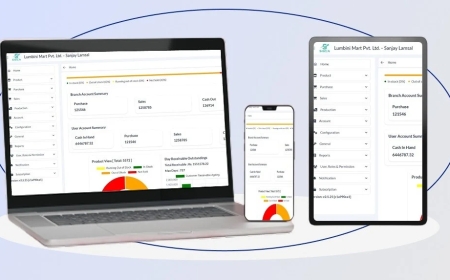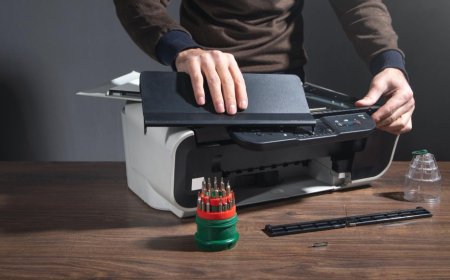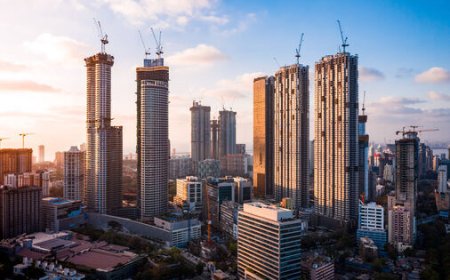Tips for Increasing the Lifespan of Inverter Air Conditioners
Inverter Air Conditioners

Keeping your air conditioning (AC) system in good condition is essential for comfort, especially during hot weather. While some people may consider cleaning or maintaining their AC units themselves, hiring a professional service is a much safer and more effective option. DIY cleaning can lead to accidents, health risks, and even damage to your AC system. In this article, we will explore why professional AC service is the better choice compared to DIY cleaning.
Inverter air conditioners are known for their energy efficiency, quiet operation, and longer lifespan compared to traditional air conditioners. However, like any appliance, their longevity depends on proper care and maintenance. By following a few simple tips, you can ensure your inverter AC runs smoothly for many years, saving you money on repairs and replacements.
Here are the best ways to extend the lifespan of your inverter air conditioner:
1. Regular Cleaning and Maintenance
One of the most important steps in keeping your inverter AC running efficiently is regular cleaning. Dust, dirt, and debris can clog the filters and coils, forcing the system to work harder and reducing its lifespan.
-
Clean or Replace Air Filters Dirty filters restrict airflow, making the AC work harder. Clean them every two weeks if you use the AC frequently or at least once a month.
-
Clean the Indoor and Outdoor Units Dust and debris can accumulate on the evaporator and condenser coils, reducing cooling efficiency. Gently clean them with a soft brush or a vacuum.
-
Clear the Surrounding Area Keep the outdoor unit free from leaves, grass, and other obstructions to ensure proper airflow.
Scheduling professional maintenance at least once a year can also help detect minor issues before they become major problems.
2. Avoid Overusing the AC
While inverter air conditioner adjusts their speed to maintain temperature, running them continuously at very low temperatures can strain the system.
-
Set a Comfortable (Not Extreme) Temperature Keeping the thermostat at a moderate setting (around 24-26C) reduces strain on the compressor.
-
Use Energy-Saving Modes Many inverter ACs have eco or sleep modes that optimize cooling while reducing energy consumption.
-
Turn Off When Not Needed If youre leaving the room for an extended period, turn off the AC instead of letting it run unnecessarily.
3. Ensure Proper Installation
A poorly installed air conditioner can lead to frequent breakdowns and reduced efficiency.
-
Hire a Qualified Technician A professional installer will ensure the unit is correctly sized, properly mounted, and has the right refrigerant levels.
-
Check for Air Leaks Improperly sealed windows or doors can make the AC work harder to maintain temperature.
-
Position the Outdoor Unit Correctly It should be placed in a shaded, well-ventilated area to prevent overheating.
4. Protect the AC from Extreme Weather Conditions
Inverter air conditioners are designed to withstand different climates, but extreme conditions can still affect their performance.
-
Shade the Outdoor Unit Direct sunlight can cause overheating. If possible, install a canopy or place the unit in a shaded spot.
-
Protect from Heavy Rain and Storms While inverter ACs are weather-resistant, covering the top of the outdoor unit (while ensuring side ventilation) can prevent water damage.
-
Winter Care If you live in a cold climate, ensure the outdoor unit is free from snow and ice buildup, which can damage internal components.
5. Use Smart Thermostats and Automation
Smart technology can help optimize your ACs performance and reduce unnecessary strain.
-
Programmable Thermostats These allow you to set schedules so the AC runs only when needed.
-
Remote Monitoring Some systems let you control the AC via smartphone, so you can adjust settings even when youre not home.
One of the biggest reasons to avoid DIY AC cleaning is the potential safety hazards involved. Air conditioners contain electrical components, refrigerants, and moving parts that can be dangerous if handled incorrectly.
-
Electrical Hazards AC units run on high-voltage electricity. Attempting to open or repair electrical connections without proper training can result in severe electric shocks or even fires.
-
Chemical Exposure AC systems use refrigerants, which are hazardous chemicals. Mishandling them can lead to leaks, causing skin burns, respiratory problems, or poisoning.
-
Physical Injuries Sharp metal parts, fast-moving fan blades, and pressurized components can cause cuts, bruises, or other injuries if not handled carefully.
Professional technicians are trained to work safely with these risks, reducing the chance of accidents.
2. Health Concerns from Improper Cleaning
A poorly cleaned AC unit can negatively impact your health. Dust, mold, and bacteria can accumulate inside the system, and improper cleaning can spread these contaminants into your home.
-
Mold and Bacteria Growth If moisture remains in the system, mold can grow and circulate through the air, leading to allergies, asthma attacks, or respiratory infections.
-
Dust and Allergens DIY cleaning may not fully remove dust and pollen trapped in the AC, worsening allergies and breathing problems.
-
Toxic Fumes Using the wrong cleaning chemicals (like bleach or strong detergents) can release harmful fumes, causing headaches, dizziness, or nausea.
Professionals use specialized cleaning agents and techniques to ensure thorough and safe removal of contaminants.
3. Risk of Damaging Your AC System
Without proper knowledge, DIY cleaning can cause serious damage to your AC unit.
-
Broken Components Accidentally bending fins, dislodging wires, or damaging coils can reduce cooling efficiency or lead to costly repairs.
-
Incorrect Refrigerant Handling Adding too much or too little refrigerant can strain the compressor, shortening the lifespan of your AC.
-
Voided Warranty Many manufacturers require professional maintenance to keep warranties valid. DIY repairs or improper cleaning may void your warranty, leaving you with expensive repair bills.
Professional technicians know how to inspect, clean, and maintain AC systems without causing damage.
4. Better Performance and Efficiency
A professionally serviced AC runs more efficiently, saving energy and money.
-
Improved Cooling Technicians clean deep-seated dirt from coils and fans, ensuring optimal airflow and cooling performance.
-
Lower Energy Bills A well-maintained AC uses less power, reducing electricity costs.
-
Longer Lifespan Regular professional maintenance prevents wear and tear, helping your AC last longer.
DIY cleaning often misses critical areas, leading to reduced efficiency and higher energy consumption.
5. Professional Tools and Expertise
AC technicians have the right tools and training to do the job correctly.
-
Specialized Equipment: Professionals use high-powered vacuums, coil cleaners, and refrigerant gauges that most homeowners dont have.
-
Proper Diagnosis: They can detect hidden issues like refrigerant leaks, electrical faults, or duct problems before they become major repairs.
-
Correct Cleaning Methods: Unlike DIY attempts, professionals follow manufacturer guidelines to ensure safe and effective cleaning.
Conclusion
While DIY AC cleaning might seem like a cost-saving idea, the risks far outweigh the benefits. Professional AC service ensures safety, protects your health, prevents damage, improves efficiency, and extends the life of your unit. Hiring a trained technician is the smarter, safer choice for keeping your home cool and comfortable.

























